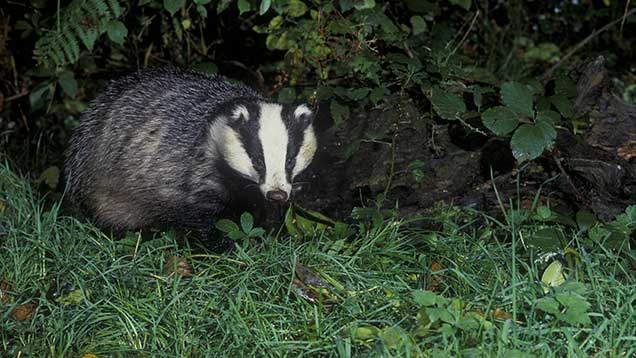Badger culls ‘are cutting bovine TB rates’
 © Hugh Clark/FLPA/imageBROKER/Rex Shutterstock
© Hugh Clark/FLPA/imageBROKER/Rex Shutterstock Badger culls are starting to reduce bovine tuberculosis among cattle in three areas of southern England, farm leaders have claimed.
Outbreaks of the disease are declining among beef and dairy herds on farms where badger culling is taking place in two pilot areas of Somerset and Gloucestershire – as well as a new cull area in Dorset, said the NFU.
“We may well see evidence at the end of this year that the two pilot culls in Somerset and Gloucester will have seen a huge reduction in bovine TB in those cattle herds,” said NFU president Meurig Raymond. “I guess we will see the same in Dorset.”
Case study: James Griffiths, Tibberton
Gloucestershire beef farmer James Griffiths believes the badger cull has ended his 11-year bovine TB hell.
“We have had three clear tests in a row after 11 years of constantly going down with the disease,” said Mr Griffiths, whose land at Tibberton lies in the Gloucestershire cull zone. In the latest test, carried out this September, all 1,800 animals tested across the farm went TB-free.
Mr Griffiths’ cattle have remained TB-free since last November and will now be tested annually, rather than every six months. Other farmers in the cull zone have reported fewer reactors since culling began in 2013, he said. “The general impression I get from the farmers I speak to is that there are less reactors around.”
Using controlled shooting to cull badgers was not popular with the public, acknowledged Mr Griffiths.
But he added: “People have to realise that controlling the reservoir of disease in wildlife has to be a part of the policy if we want to eradicate the disease in this country.”
Culling was reducing the disease in England – unlike vaccination, which was failing to reduce TB in Wales, Mr Raymond told a fringe meeting hosted by the NFU and the Food and Drink Federation at the Labour Party conference in Brighton on Monday (28 September).
This is the third year pilot badger culls have taken place in Somerset and Gloucestershire.
The government gave the go-ahead for badger culling in Dorset this summer – a decision that Defra said represented the “cautious rollout” of the policy rather than another pilot zone.
The six-week culling operation in all three counties is due to finish in two weeks.
The government’s Animal Health and Plant Agency will publish formal results of TB levels among cattle in the cull zones later this year.
Animal welfare campaigners claim the culls are ineffective and inhumane – and could even spread TB as diseased badgers flee the cull zones.
But a spokesman for Gloscon, the company undertaking badger culling in Gloucestershire, said the operation had been “going very well” this year.
In Somerset, NFU county chairman James Small said: “Culling in the Somerset area is going well. Protest action is no more or less than in previous years. Everyone is reasonably confident they will be able to achieve targets. It looks as if the disease incidence is dropping.”
In Dorset, an NFU source said: “It is going reasonably well. There is some disruption [from protesters], which is gradually building up. But it is not as bad as it has been in Gloucestershire in previous years.”
